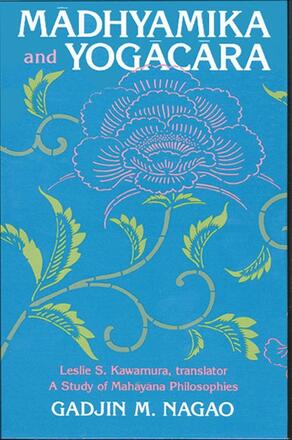
Mādhyamika and Yogācāra
A Study of Mahāyāna Philosophies
Alternative formats available from:
Description
Nagao invariably focuses on the core of Mahāyāna Buddhism--the path of the Bodhisattva, the doctrine of śūnyatā, and the system of Trisvabhāva are explained.
Important technical terms used in the Mahayana textual tradition, whose exact understanding is imperative for the study of Mahāyāna Buddhism, are skillfully presented, making the book indispensable to scholars of Buddhist studies.
Gadjin M. Nagao is Professor Emeritus of Buddhist Studies at Kyoto University, Japan. He is the author of The Foundational Standpoint of Mādhyamika Philosophy, also published by SUNY Press. Leslie S. Kawamura is Professor of Religious Studies at the University of Calgary, Alberta, Canada.
Reviews
"It ties together for the first time the two primary schools of Indian Mahayana tradition. Nagao's insights have been valued by Japanese scholars all along and only recently have Western scholars appreciated them. This offers a complete picture of his novel deliberations, showing a first-rate thinker at work. " -- Kenneth Inada, State University of New York, Buffalo
"Professor Nagao is one of the most respected scholars in Buddhism, especially in Yogacara. His detailed treatment of each of the themes combined with a careful linguistic analysis of Buddhist philosophical concepts sheds much light on Buddhist doctrines. " -- David J. Kalupahana, University of Hawaii
"The author's strength in philological discipline and knowledge is manifest. The height of his philosophical achievement may be glimpsed in the chapter entitled: The Logic of Convertibility, which explicates the dialectical structure underlying the Madhyamika and Yogacara systems. " -- Shohei Ichimura, Institute of Buddhist Studies, Berkeley, California